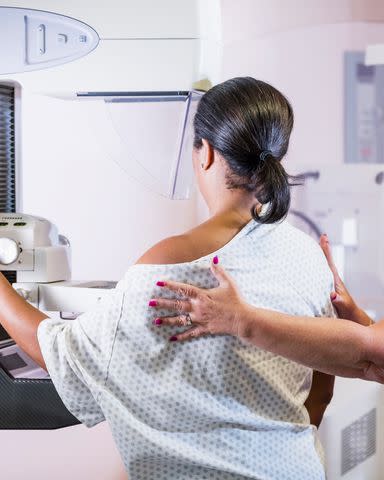2 Million People Will Be Diagnosed with Cancer This Year — the Most Ever — Due to Rising Cancer Rates in Those Under 50
While mortality rates are down, more cases of cancer are being diagnosed — and the rates of colorectal cancer cases are “alarming”

Getty
Cancer cases are expected to top 2 million this year.The United States is expected to see a record-breaking 2 million cases of cancer this year.
That’s because cancer rates are rising among those under 50, according to the American Cancer Society’s annual report on cancer statistics.
“As a nation, we’ve dropped the ball on cancer prevention as incidence continues to increase for many common cancers – like breast, prostate, and endometrial, as well as colorectal and cervical cancers in some young adults,” said Rebecca Siegel, senior scientific director, surveillance research at the American Cancer Society and lead author of the report, per the release.
In fact, colorectal cancer is now the leading cause of cancer death for men under 50, and the second-leading cause of cancer death for women under 50. (Breast cancer is the top cause of cancer deaths in women under 50.)

Getty
Mammograms are important screening tools for breast cancer.Colorectal cancer affects Black men at an even higher rate. The report notes more racial disparities, saying “mortality rates are two‐fold higher for prostate, stomach, and uterine corpus cancers in Black people and for liver, stomach, and kidney cancers in Native American people.”
“This report underscores the need for public policy interventions to help reduce these cancer disparities and save more lives,” Lisa A. Lacasse, president of ACS’s advocacy affiliate, the American Cancer Society Cancer Action Network, said in the release.
And while mortality rates from cancer are overall down, the rates of colorectal cancer among those under 50 are rising — and they’re rising fast.
“The continuous sharp increase in colorectal cancer in younger Americans is alarming,” said Dr. Ahmedin Jemal, senior vice president, surveillance and health equity science at the American Cancer Society and senior author of the study.
Never miss a story — sign up for PEOPLE's free daily newsletter to stay up-to-date on the best of what PEOPLE has to offer, from celebrity news to compelling human interest stories.
“We need to halt and reverse this trend by increasing uptake of screening, including awareness of non-invasive stool tests with follow-up care, in people 45-49 years," he continued. "Up to one-third of people diagnosed before 50 have a family history or genetic predisposition and should begin screening before age 45 years. We also need to increase investment to elucidate the underlying reasons for the rising incidence to uncover additional preventive measures.”
The problem is younger people who are not part of historically at-risk age groups are less likely to get screened. Additionally, patients under the age of 65 are less likely to have health insurance, per the report, leading to fewer doctor visits.
“People younger than 65 are less likely to have health insurance and more likely to be juggling family and careers,” said Dr. William Dahut, chief scientific officer at the American Cancer Society.
He added, “Also, men and women diagnosed younger have a longer life expectancy in which to suffer treatment-related side effects, such as second cancers.”
For more People news, make sure to sign up for our newsletter!
Read the original article on People.


